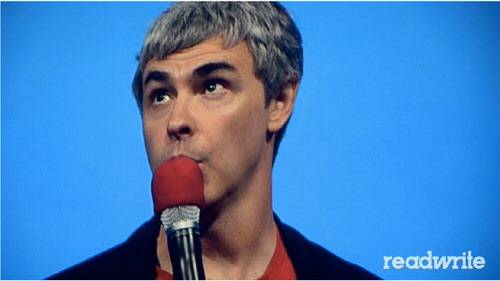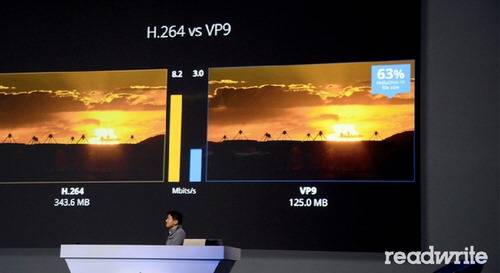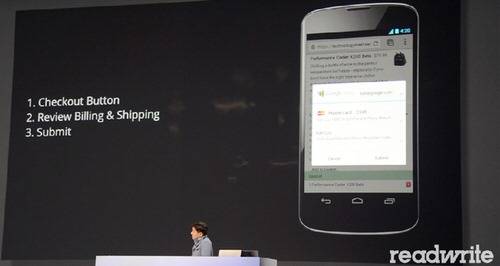
“We are only at 1% of what is possible.” ~ Google CEO Larry Page
Page is right. Even though it seems like we get a breakthrough new technology every year, we are really just scratching the surface. But what does that really mean? If we have achieved only 1% of what is technologically possible, Google is setting itself up to be the company that fills in the other 99%.
Just look at the Google I/O keynote Wednesday morning in San Francisco. The company had so many aspects of its product portfolio to announce that it took three hours to work through it all. And that was before Page hit the stage and turned all philosophical:
I think we’re all here because we share a deep sense of optimisim about the potential for technology to improve people’s lives and the world.
Google Owns The Second Half Of The Chess Board
At a conference in Boston last week Andrew McAfee, a Principal Research Scientist at the Massachusetts Institute of Technology, related a story about the pace of innovation that directly speaks to Page’s notion. McAfee recounted how the inventor of chess introduced the game to the emperor of India. The emperor was so impressed with the game’s combination of simplicity and complexity, depth and vision, that he told the inventor he could have any gift he could imagine.
The inventor asked for a grain of rice, doubled for each square on the chess board. On the first square he would get a single grain of rice, on the second square he would get two, on the third he would get four grains, and so on. The request seemed fairly humble to the emperor and he granted it.

What the emperor did not realize, of course, is that if you keep doubling a number, it doesn’t take long for for the figures to get really, really big. If the emperor had delivered all the rice he agreed to, the pile would have been bigger than Mount Everest.
McAfee linked this story to Moore’s Law (which holds that number of transistors on an integrated circuit doubles approximately every two years) and the explosion of data created by humans, rapidly approaching the mind-numbingly large “yotta” byte. Between Big Data and Moore’s Law, McAfee said, we have entered the second half of the chessboard of innovation.
Google’s Mountain Of Rice
In this case, though, Google is both the inventor and the emperor. Just like chess, Google’s portfolio of products is deceptively simple but utterly complex. And the company is well positioned to turn that portfolio into a truly epic mountain of rice.
Rice, in this case, could mean data. Or money. Or better yet, innovation.
Who is going to challenge Google’s core products? Yahoo and Microsoft can’t come close to what Google has done with the knowledge graph and voice search. Android is forging ahead of iOS around the world. Chrome is one of the simplest but most sophisticated browsers on the planet. And the company’s search ad products just keep cranking out the profits that pay for the company’s push in to new areas.

Larry Page Doesn’t Think Competition Is Interesting
Yet the individual products seem almost incidental to Page’s quest for innovation. Towards the end of the keynote, he harped on the technology industry for holding back the pace of innovation with lawsuits, data hoarding and stifling cross-platform integration:
You know we haven’t seen this rate of change in computing for a long time. Probably not since the birth of personal computing… [but] despite the faster change in the industry, we’re still moving slow relative to the opportunities we have.
If Page had his way, Google would not be playing chess against it competitors, but working with them to create even more rice:
You know every story I read about Google is sort of us vs. some other company, or some stupid thing, and I just don’t find that very interesting. We should be building great things that don’t exist. Most important things are not zero-sum. There’s a lot of opportunity out there. We can use technology to make really new and really important things to make people’s lives better.
Business, of course, doesn’t typically work that way. Google has to exist within a whirlwind of quarterly earnings statements and antitrust lawsuits, litigation and corporate development. Given all that, it’s amazing that Google is able to do all that it does, pushing the boundaries of technology every year. If Page is right, and we are truly just at 1% of what technology is capable of, someone has to lead the way into the remaining 99%. And despite Page’s protestations, no one is better positioned than Google to do just that.
Images by Nick Statt for ReadWrite.










